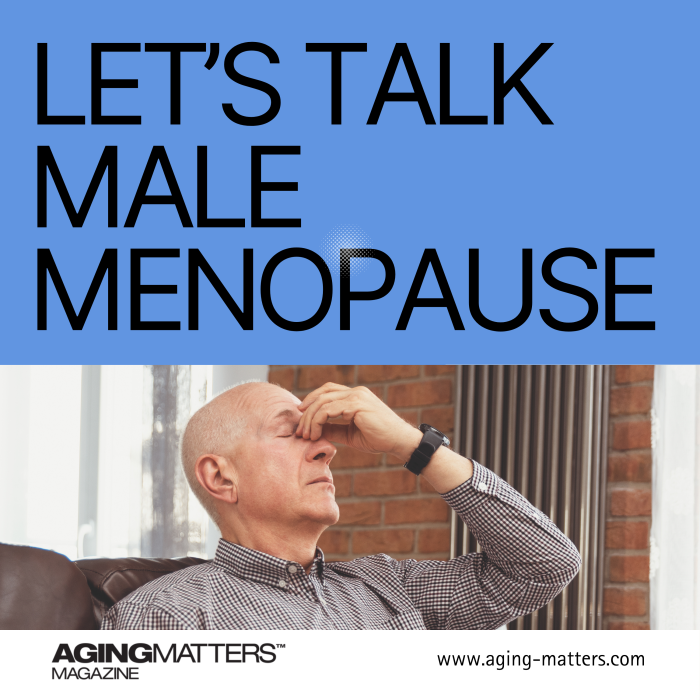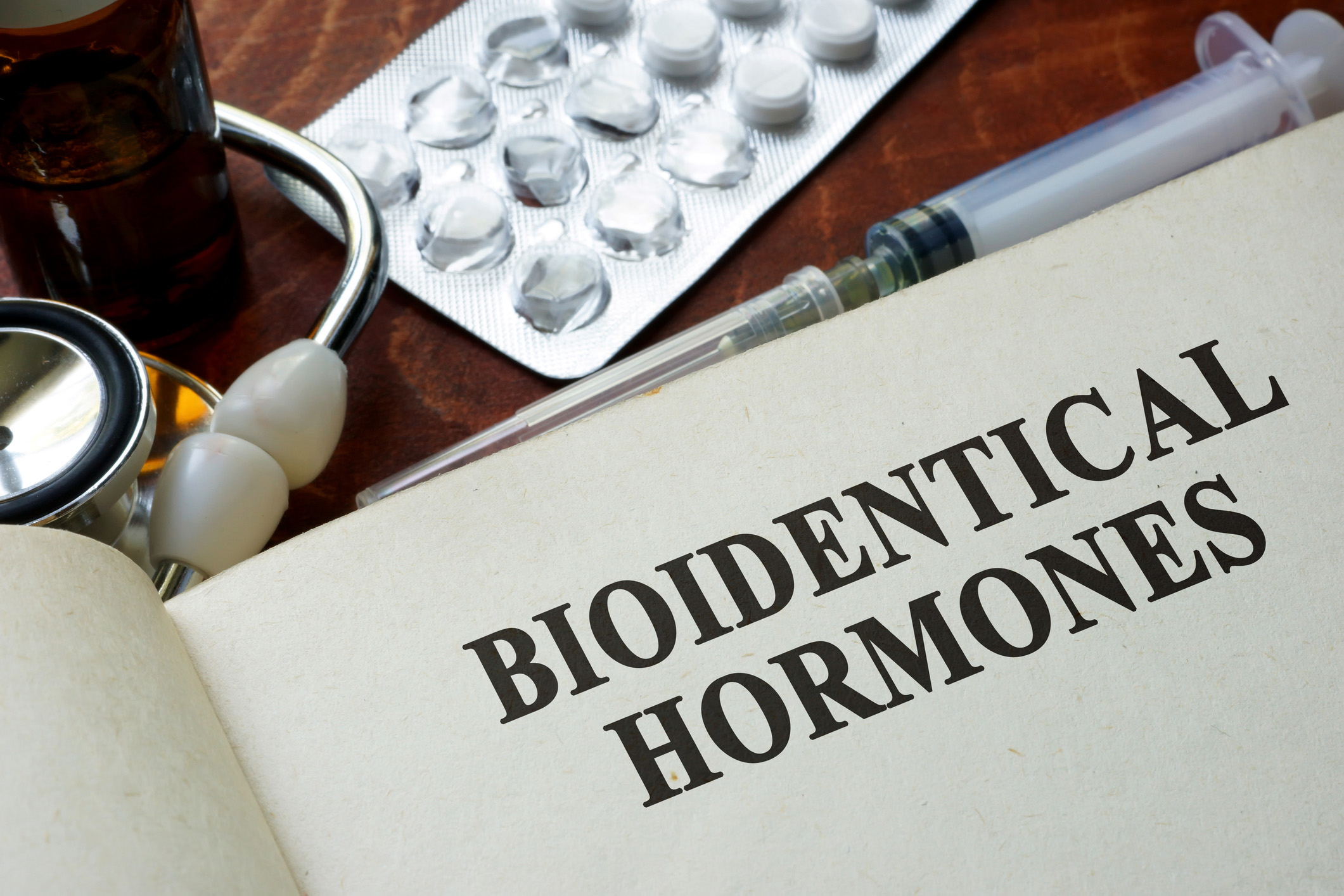
Men and the Menopause
June 3rd, 2024The female menopause is a big part of a woman’s life. Often experienced between the ages of 45-55 (although this isn’t set in stone, the menopause can be experienced as young as mid-20s and after the age of 60. However, this is rare.
With the menopause being a big topic of conversation in the antiaging world, the andropause – male menopause – is often overlooked. However, you did read that right – it’s just women who experience a change in health associated with aging as they reach their late 40s to early 50s.
What is the “male menopause”
The male menopause, also known as the andropause, is the name used for when a male entering his late 40s to early 50s may experience a range of symptoms that inhibit their quality of life.
These can range from physical symptoms such as loss of muscle lass fat redistribution or erectile dysfunction, to mental symptoms like mood swings, brain fog, irritability and a general low mood/loss of enthusiasm [1].
Symptoms of the andropause are often attributed to a drop in testosterone levels, however this is not usually the primary cause of andropause symptoms. Whilst male testosterone levels do fall naturally through normal aging, it is at a very low rate (around 1% a year from age 30). This rate of drop is unlikely to be responsible for the symptoms of male menopause and recent research has discovered the most likely causes are related to personal or lifestyle issues that can be in conjunction with falling testosterone levels or even a testosterone deficiency (hypogonadism).
Lifestyle factors of andropause
Common lifestyle factors that cause symptoms such as low libido and ED include poor sleep, stress, depression, smoking and other health problems, particularly those affecting the cardiovascular system.
In addition, men who are in their 30s and 40s are aware they may be halfway through their life – this can lead to a “midlife crisis” in some individuals which again can lead to symptoms attributed to andropause.
Lack of exercise leading to weight gain/poor health, drinking too much alcohol and being vitamin deficient also all contribute.
Treating andropause
The first step for anyone who is concerned they may be experiencing symptoms of a male menopause or lack of testosterone should consult their health provider. A simple blood test can measure testosterone levels and potentially rule a deficiency out. Testosterone replacement therapy is possible for anyone who does have significantly low levels which may be causing andropause symptoms.
If lack of testosterone is not a factor, then it is prudent to examine your lifestyle and see if beneficial changes can be made. These may include controlling your diet, taking more exercise, spending more time with friends/family, changing work patterns, getting more sleep or stopping smoking.
In addition to changing lifestyle habits, looking into dietary supplements to aid overall health and wellbeing is also beneficial.
Supplements to support health and wellbeing
Supplements designed to help health and wellbeing are typically split down into addressing different health conditions and areas of the body. In addition, there are options like full multivitamin supplements and peptide bioregulators, which work to normalize different areas of the body.
Depending on the andropause symptoms being experienced, some beneficial options include:
Longevity enhancement supplements
- Autophagy inducers such as SpermidinePurePro™, working to boost cellular renewal.
- Antioxidants such as Idebex which contains Idebenone, an enhanced version of CoQ10 which fights free radicals and helps to build healthy cells.
- NAD+ boosters such as NMN (beta Nicotinamide Mononucleotide) which provides overall antiaging support and boosts NAD+ levels to slow down the reduced functioning of SIRTUINS genes (associated with healthy aging).
- Peptides to boost various areas of the body including the pineal gland.
- Nootropics like CentroPro™ and Deprenyl to enhance brain function.
- Hormones like Melatonin to aid sleep.
Supplements to boost energy
- NAD+ boosters also feature in this category, such as NMN and NADPro™.
- Supplements containing Coenzyme -1, aka NADH (Nicotinamide-Adenine-Dinucleotide) which is a deviate of Vitamin B3. This improves cognitive performance and boosts energy as NADH is involved with every aspect of energy production in the body.
- ATP boosters which support the production of energy through enhancing mitochondrial function.
- Multivitamin blends, particularly those containing B complex vitamins which are heavily involved in energy production
Options to help with stress and anxiety
- 5HTP (5-hydroxytryptophan) is a supplement designed to help with weight and anxiety as well as aiding sleep and weight control. It contains 5HTP which is a building block for the vital neurotransmitter serotonin, which is key in treating depression. Low serotonin levels are also linked with weight problems, insomnia and obesity, all which contribute to stress and anxiety.
- PicPro™ is an anti-anxiety drug that contains Picamilone. This works to calm and stimulate mental state to reduce stress.
- Energy boosters for ATP and NAD+, as increased energy contributes to having a better frame of mind and being able to exercise more, which is then linked with weight loss if this is part of the overall problem.
- Peptides targeted to Adrenal gland function such as Glandokort® and Nature’s Marvels™. The adrenal gland produces cortisol, adrenaline and noradrenaline hormones, all of which aid with stress, apathy and metabolism.
Supplements to help with sleep problems
- Melatonin supplements to help with sleep disorders by regulating the Circadian rhythm.
- Epitide® which combines Zinc, Selenium, Nervonic acid, Amino acids and Amino acids complex to help regulate the sleep/wake cycle.
- L-tryptophan supplements – this is an amino acid that our bodies find essential for making proteins and the neurotransmitter Serotonin.
Aiding low libido and erectile dysfunction
- Peptides designed to aid low libido and ED such as Testoluten® or Nature’s Marvels™ which normalize testes function.
- Tadalafil and Sildenafil supplements, which are phosphodiesterase type-5 (PDE5) inhibitors. This helps to improve erectile function by increasing the availability of the messenger molecule cGMP (Guanosine 3′,5′-cyclic monophosphate) which relaxes muscle and improves blood flow in erectiletissue.
- Nitric oxide boosters to improves blood flow and supports cardiovascular function
- Oxytocin supplements which help with the emotional side of making love by aiding bonding and desire.
- Estrogen blockers for men, as increasing estrogen levels in the environment can affect our bodies. These contain DIM (Di-indolylmethane) which helps to restore the body’s equilibrium.
Weight loss aids
- Decaffeinated Green Coffee Bean Extract helps with burning sugar and fat to aid weight loss.
- MSH-2 (Melanocyte Stimulating Hormone) is a well-known appetite suppressant that can be administered via an intra-nasal spray. MSH has been shown to play a role in helping to boost libido.
- Supplements containing HCG (Human Chorionic Gonadotropin) which is a hormone long used as a dieting and weight loss aid.
- 5-Hydroxytryptophan (5HTP) supplements are very effective for people seeking to lose weight as it helps the body to feel full sooner.
These are just a few examples in different categories as to how dietary supplements and aids can help with the symptoms experienced by those who are undergoing a male menopause. For further information, please visit our antiaging resource at https://www.antiaging-systems.com/
Resources







